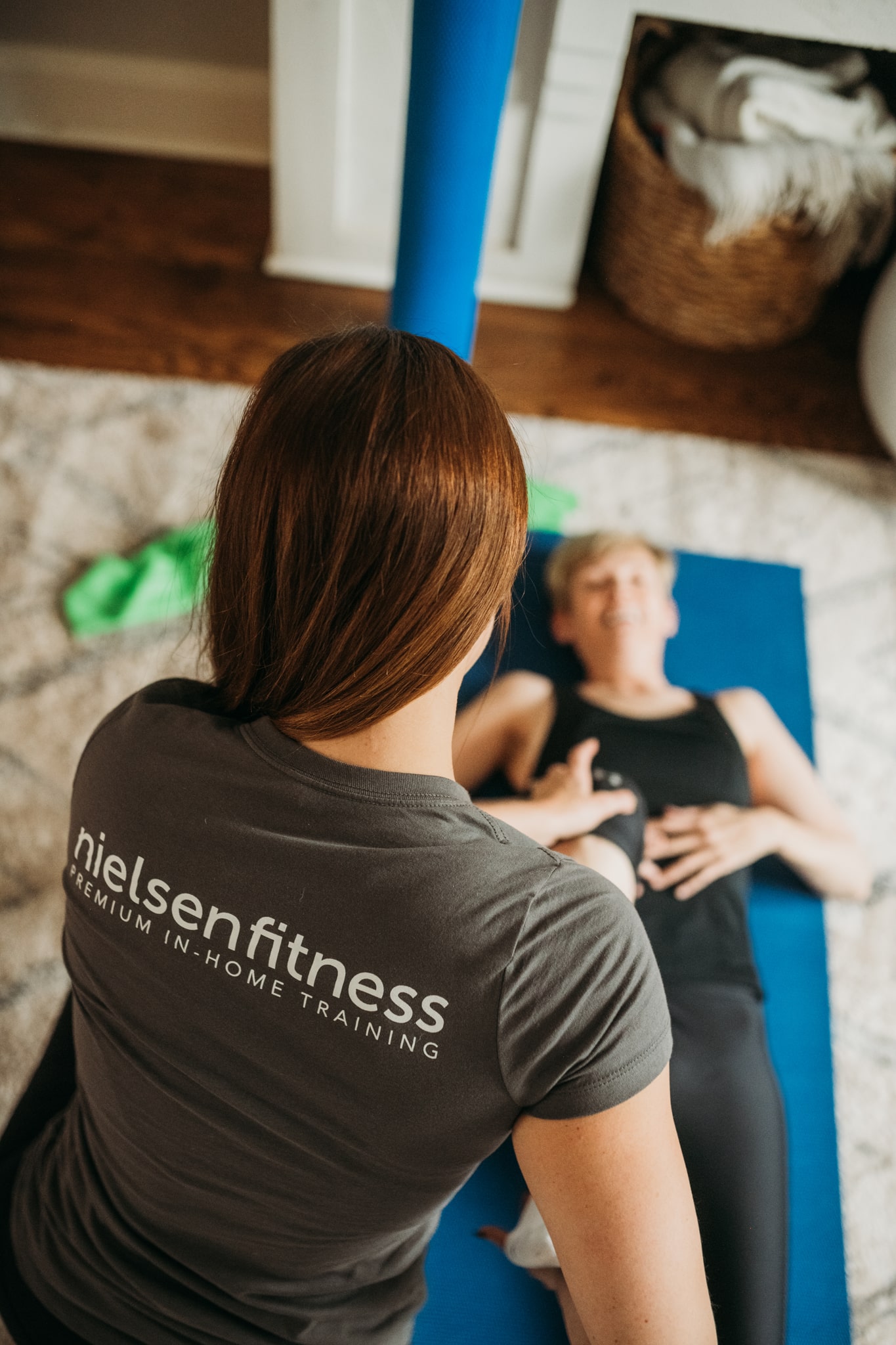April 19th, 2024
How to Exercise With Hyper and Hypothyroidism
Thyroid disorders can significantly impact energy, metabolism, and overall well-being, which is why structured exercise requires careful planning—an area where in-home and virtual personal trainers can really help.
Your thyroid gland is a part of your endocrine system, which is responsible for producing and releasing hormones into your bloodstream. It’s located in the front of your neck and acts as a regulator for many physiological functions by producing the hormones that are responsible for controlling your metabolism, energy production, and body temperature, among other functions. We work with clients who live with thyroid disorders every day, as incorporating exercise into their routines is a bit of a balancing act – but is entirely possible and extremely beneficial. Here are some things to consider regarding exercising with hyperthyroidism or hypothyroidism.
THYROID DISORDERS 101
There are several kinds of thyroid disorders, but this post focuses on two of the most common: hyper and hypothyroidism. Hyperthyroidism causes the thyroid gland to produce excessive thyroid hormone, leading to symptoms like rapid heartbeat, weight loss, anxiety, and heat intolerance. Hypothyroidism, on the other hand, occurs when the thyroid gland doesn’t produce enough thyroid hormone. Common symptoms include fatigue, weight gain, cold sensitivity, and depression.
For clients with hyperthyroidism, excessive exercise can exacerbate symptoms such as rapid heartbeat and fatigue. Whereas clients with hypothyroidism may struggle with low energy levels and weight gain, making it challenging to engage in physical activity.
Despite this, “exercise can help people with long-lasting conditions cope with symptoms and improve their overall health” (Mayo Clinic, 2023) so it’s important not to let these potential risks and challenges stop you from exercising altogether. Here are a few of our rules of thumb when it comes to exercising safely and smartly with a thyroid condition:
TALK TO YOUR DOCTOR
Before starting a new exercise regimen (even with an in-home or virtual personal trainer), talking to your doctor is important. This is a general rule, but it’s particularly critical if you have an underlying condition like hyper or hypothyroidism. Your doctor can offer personalized advice based on your specific condition and health status and, in some cases, may even want to collaborate with your trainer to ensure that your exercise program aligns with your medical needs, minimizes potential risks, and maximizes the effectiveness of your workouts.
LISTEN TO YOUR BODY
Pay attention to how your body responds to exercise. Again, this is a general rule, but one that’s especially important when dealing with hyper or hypothyroidism. If you experience palpitations, dizziness or extreme fatigue, it may be a sign to dial back the intensity or duration of your workout. Having an in-home or virtual personal trainer guide you through your workout is a fantastic way to ensure you’re exercising safely, smartly, and effectively.
PRIORITIZE RESISTANCE TRAINING
Resistance training activities like lifting weights, using resistance bands, or simply performing bodyweight exercises can build muscle mass, improve muscle strength, and boost metabolism. This is essential for managing your weight and combating the fatigue associated with hyper and hypothyroidism. Resistance training also helps to maintain your bone density, which is particularly important as thyroid conditions can increase your risk for osteoporosis. “Activities that put stress on bones can nudge bone-forming cells into action. That stress comes from the tugging and pushing on the bone that occurs during strength training (as well as weight-bearing aerobic exercises like walking or running). The result is stronger, denser bones” (Harvard Health, 2024). On top of this, regular strength training will enhance your mood, increase your energy, and improve your overall quality of life.
STRESS MANAGEMENT
As is the case with many health conditions, stress can exacerbate the symptoms of hyper and hypothyroidism. Exercise is known to be a powerful tool for managing stress on the mind and body, as physical activity triggers the release of endorphins: neurotransmitters in the brain that promote feelings of wellbeing. Exercise also reduces your levels of stress hormones like cortisol and adrenaline; “In addition to the physical benefits of exercise, it’s also associated with a reduction in stress signals in the brain” (CNN, 2024).
This promotes better sleep (which is often disrupted by stress), and fosters a sense of relaxation by relieving possible muscle tension and promoting deeper breathing (shallow breathing is a manger indicator of stress). Furthermore, regular workouts with an in-home or virtual personal trainer are a healthy distraction from life’s stressors, allowing you to focus on the present moment and channel your energy into something productive.
TEMPERATURE REGULATION
Hypothyroidism can cause difficulty regulating body temperature. It’s important to be mindful of exercising in extreme temperatures to avoid overheating or chilling. Begin by dressing appropriately for the activity and the environmental conditions; if you’re training outdoors, check the forecast! Choose moisture-wicking fabrics that help dissipate sweat, and stay hydrated by drinking water before, during and after your workout to replace fluids lost from sweating. Pace yourself, gradually increasing intensity to allow your body to acclimate. A proper warm-up is key! Lastly, practice proper breathing to aid in heat regulation, as exhaling releases heat from your body.
FINAL WORDS
No matter what your goal is, consistency is always the key to seeing long-term benefits from exercise. Aim for a balanced routine that includes a mix of cardio, strength, and flexibility training, tailored to your preferences and limitations.
If you’re unsure of exactly what that looks like for you, we can help! Nielsen Fitness offers in-person training in Toronto, Collingwood, Ottawa & Hamilton and virtual personal training everywhere. First workouts are zero pressure and always free – you can book yours here.
By listening to your body, consulting healthcare and fitness professionals, and adopting a balanced approach to exercise, you can maintain an active lifestyle while effectively managing your hyper or hypothyroidism.

